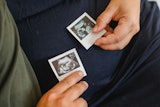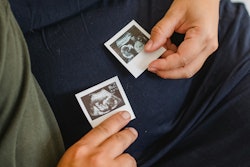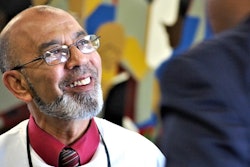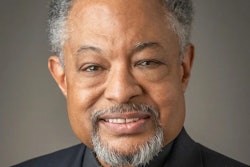Saving A Generation
North Carolina public health department partners with state’s Black colleges to raise awareness about HIV/AIDS
By Crystal L. Keels
North Carolina A&T does it. Across the street, Bennett College does it too. So do Elizabeth City State University, Livingstone and Fayetteville State. These North Carolina-based historically Black institutions have made HIV/AIDS education a part of the student experience at their respective campuses, and one school, Johnson C. Smith University, has gone so far as to make it mandatory for all incoming first-year students. These educational interventions could not be more timely, because all 12 of the state’s historically Black schools began their efforts before alarming new statistics about the rise in HIV/AIDS cases among Blacks in North Carolina made national headlines last year.
According to recent findings from the North Carolina Department of Health and Human Services and the Centers for Disease Control and Prevention, the incidence of HIV/AIDS infection is 14 times higher among heterosexual Black women ages 18-40 in North Carolina than for Whites in the same range. This surge in the number of Black women testing positive for HIV/AIDS follows reports in 2003 of the increase of infection rates among young Black college men in North Carolina, most of whom were either identified as MSM (men who have sex with men), or men who have sex with both men and women. According to many reports, 70 percent of the HIV/AIDS population is African American, both in North Carolina and the United States in general.
In response, HIV/AIDS awareness, education and testing have become the primary weapons to fight what figures to be another challenge to African-American health and wellness. And with North Carolina’s HBCUs as the major battleground, it’s no exaggeration to say that state health and education administrators are fighting to save a generation.
“This is a problem for the (entire) African-American community,” says Phyllis Gray, director of the HIV/STD Prevention and Care Branch of the North Carolina Division of Public Health. “It doesn’t matter if you are a CEO or a wino, we are a state agency trying to eliminate serious health disparities. We have to figure out what to do. It is an agency mandate to take care of the needs of North Carolinians.”
To achieve that goal, the agency established contracts with the state’s HBCUs to enhance HIV/AIDS education efforts. The program, Project Commit to Prevent, was put in place June 1, 2003.
“If you want to serve a population, you have to mobilize all the people who can help,” Gray says about the partnerships forged between the North Carolina Public Health office and the state’s 12 HBCUs.
In its first year, the project provided a mechanism for the state’s historically Black colleges and universities to collaborate and implement potentially life-saving strategies. Institutions worked with Project Commit to Prevent to arm young adults with information about safer sex options and advance the mission of the North Carolina Division of Public Health.
“We needed to partner with organizations that already commanded respect in their communities to work with those communities,” she says about the importance of the state’s HBCUs. “Our primary mission is education — we need them to help us.”
With very little money, the state’s historically Black universities have been able to step up their efforts towards HIV/AIDS education and prevention. Each institution was awarded $15,000 from the North Carolina Department of Health and Human Services in 2003 to apply towards their endeavors, including campus-based HIV and sexually transmitted disease (STD) testing and counseling. Two years later, the impact of the initiative is apparent in various manifestations on HBCU campuses across the state.
BREAKING THROUGH FEAR
Johnson C. Smith University in Charlotte parlayed their participation and partnership with Project Commit to Prevent into what has now become a graduation requirement for their students. All incoming first-year students at the university must take “HIV 101” as part of freshman orientation.  “HIV 101 is an hour-long seminar,” says Maya Gibbons, JCSU director of counseling and testing services. Gibbons and Dr. Karen Butler, JCSU chair of health and human performance and the school’s liaison for the Commit to Prevent partnership, promote HIV/AIDS education on campus. Gibbons says the seminar became mandatory during freshman orientation at the insistence of JCSU orientation organizer, Dr. Gayle Summerskill. “Dr. Summerskill made it mandatory that all freshmen have to take HIV 101. We reached 400 students in the first two semesters it was offered,” Gibbons says.
“HIV 101 is an hour-long seminar,” says Maya Gibbons, JCSU director of counseling and testing services. Gibbons and Dr. Karen Butler, JCSU chair of health and human performance and the school’s liaison for the Commit to Prevent partnership, promote HIV/AIDS education on campus. Gibbons says the seminar became mandatory during freshman orientation at the insistence of JCSU orientation organizer, Dr. Gayle Summerskill. “Dr. Summerskill made it mandatory that all freshmen have to take HIV 101. We reached 400 students in the first two semesters it was offered,” Gibbons says.
During the seminar, students participate in hands-on, interactive activities that make the effect of HIV/AIDS upon communities glaringly apparent. The seminar is taught by Sonji Pass from Charlotte’s Metrolina AIDS Project, a community-based organization.
“We have students exchange cards of different colors with every other student in the room,” Pass explains. “Each color represents a behavior. Pink is unprotected sex, blue is contaminated needles, green is safer sex and yellow is kissing and hugging.” Students’ signatures are required on the cards and one student in the room is pre-identified as HIV positive to dramatize what happens when HIV is present but undetected.
“We focus on the cards, read the names on them and have those people stand. The pink and blue names show where HIV is popping up. In a short amount of time, 100 percent of the room is standing,” Pass says. “Students see it, hear names and then take their seats for a debriefing period. Then we open it up for questions. It is extremely successful. I’m always bombarded with questions after the session. We are breaking through their fear.”
Although reports of HIV/AIDS saturated media outlets in the 1980s, HIV/AIDS is still widely misunderstood. Myths and stigma serve as roadblocks to HIV/AIDS education and prevention, particularly among certain segments of the population.
“We assume students know what this disease is about, but it surprises me how many don’t get information. Some believe it is possible to become infected from kissing, or from mosquitoes,” says Gibbons. “We are discovering and dispelling myths. Our students really deserve credit because they do want to take care of themselves and do the right thing. They take it very seriously.”
She adds that the more people talk about it, the more people will go get tested. “Our aim is to put HIV/AIDS awareness back in the forefront. Our job is to arm students with everything they need, to armor themselves.”
ON A MISSION
Several other North Carolina HBCUs are following suit and making HIV/AIDS education a part of freshman orientation. Lena Clayton, director of student health services at Fayetteville State University says, like JCSU, FSU includes HIV/AIDS information during orientation. In their sessions, students also learn about Broncos on a Mission for Broncos, popularly known on campus as the BOMB Squad.
The BOMB Squad is a formalized student organization in which peer educators participate in activities and events to facilitate HIV/AIDS education. Members of the squad must be at least second-semester freshmen and hold a minimum 2.5 grade point average.
“Right now we have about 12 students and would like to have a pool of two to three more,” Clayton says. Among other things, the organization regularly passes out goodie bags filled with flyers, condoms and other safe sex items, as well as Clayton’s business card. “Students on campus know the BOMB bag and will come to (our peer educators) to get them,” she says.
The organization has even garnered television coverage and now receives requests for HIV/AIDS education and awareness presentations from campus and local community groups. Recently, the organization received its first invitation from a local church.
“Someone from the church will be with me at all times,” Clayton says about this upcoming presentation. “Our peer educators have been taught to tell the truth. Some people may not want to hear what they have to say.”  Such silence has been deadly for the African-American community and has added exponentially to the current health crisis. At Winston-Salem State University, like many other North Carolina HBCUs, HIV/AIDS educators have found non-threatening ways to get the word out to the campus community and beyond. Dr. Deborah Fountain, university counseling center director and WSSU liaison for Project Commit to Prevent says, “We are still in the process of learning what this (disease) is. If we can talk about things, we can make progress.”With 85 active student peer educators as part of the university’s outreach program, WSSU has taken HIV/AIDS education and awareness information out to the community.
Such silence has been deadly for the African-American community and has added exponentially to the current health crisis. At Winston-Salem State University, like many other North Carolina HBCUs, HIV/AIDS educators have found non-threatening ways to get the word out to the campus community and beyond. Dr. Deborah Fountain, university counseling center director and WSSU liaison for Project Commit to Prevent says, “We are still in the process of learning what this (disease) is. If we can talk about things, we can make progress.”With 85 active student peer educators as part of the university’s outreach program, WSSU has taken HIV/AIDS education and awareness information out to the community.
“It’s not always easy for a college to take on this issue,” says Gray at the North Carolina Division of Public Health. “I applaud all 12 institutions.”
Related Links:
North Carolina Department of Health and Human Services
http://www.epi.state.nc.us/epi/hiv/
Project Commit to Prevent
http://www.epi.state.nc.us/epi/hiv/pdf/ProjectCommitToPrevent.pdf
© Copyright 2005 by DiverseEducation.com





















